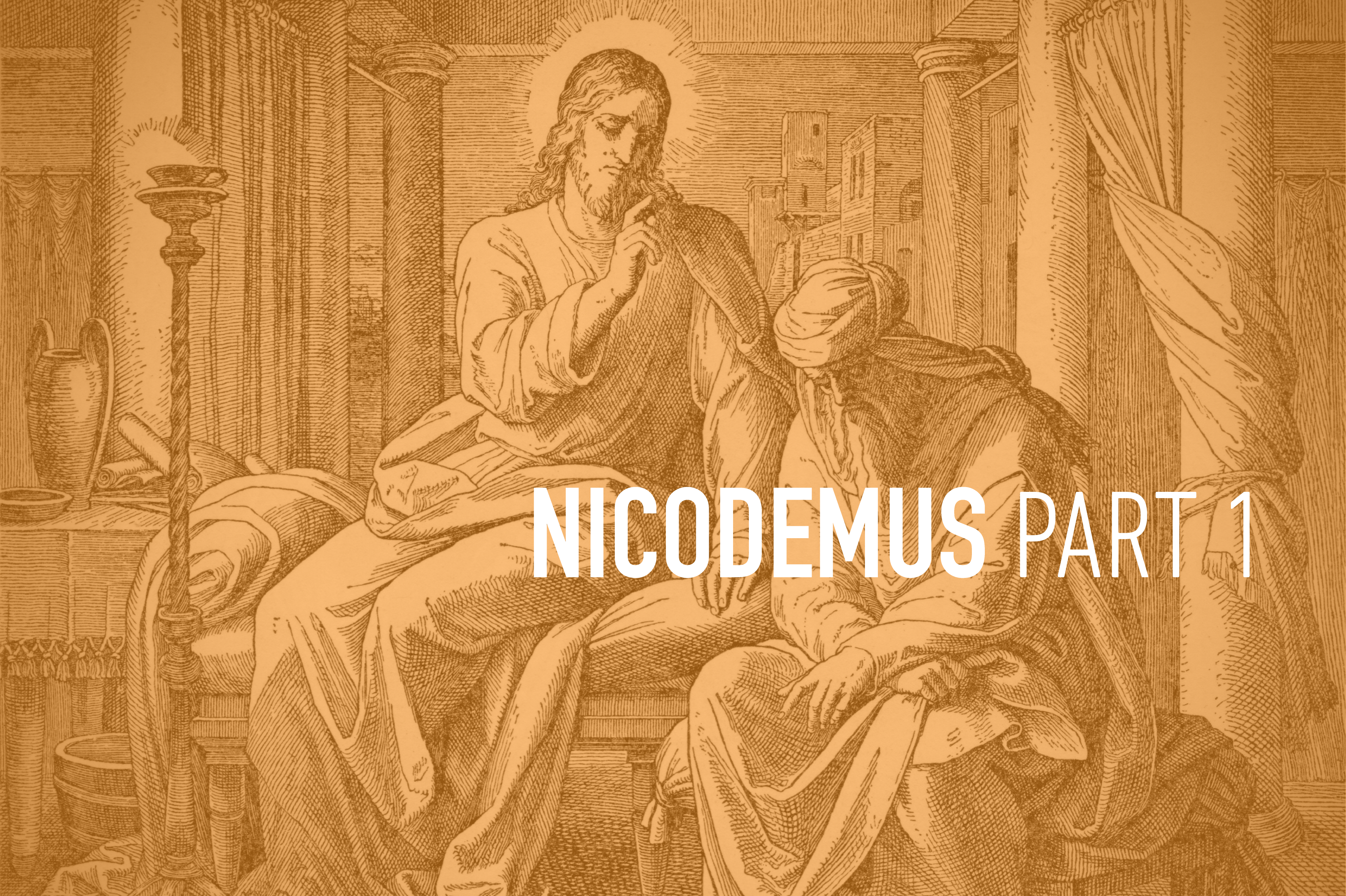John 3 is a very familiar passage, but recently it got me thinking about salvation through the character Nicodemus.
Nicodemus is best known for being the first to brazenly ask Jesus, “What does it mean to be born again?” A question we ought to be asking ourselves anew today.
The phrase born again has devolved into nothing more than jargon in evangelicalism. Nicodemus was simply a forerunner trying to shift his epistemology to comprehend the process of Salvation.
[easy-tweet tweet=””Born again” has devolved into nothing more than jargon in evangelicalism” user=”@RobHoskins”]
Who Was Nicodemus?
While we don’t have all the details on Nicodemus’ life and transformation, we have enough glimpses to piece together a picture of the progression of his complex spiritual development. Nicodemus is noted in Jewish history as an elite Pharisee—a member of the Sanhedrin. He was wealthy, powerful, and popular—a man of business, a mystic, and miracle worker.
A Disruptive Encounter in the Temple
Nicodemus first hears of Jesus in the temple shortly after the Passover when the city of Jerusalem is flooded with people—experts estimating there may have been upwards of 400,000 visitors in Jerusalem.
A packed city means big business for a man like Nicodemus. As a member of the Sanhedrin, he likely had the power to decide who got to sell during the festival and maybe even which vendors would get to have stalls inside of the temple courts.
So when a carpenter from Nazareth named Jesus violently storms through the middle of the temple kicking over tables, Nicodemus realizes this is no ordinary man. He’s heard of this Jesus—the miracle worker with a following.
A Quiet but Risky Visit
I believe, at this point, Nicodemus already possesses a level of belief. Yet as a member of the Sanhedrin, the epistemology that has driven Nicodemus’ life is tight. From the time he was young, he has been rigorously memorizing Scripture, tying it to his arms, and working to interpret the words and create meaning to try to earn God’s approval.
And suddenly this man appears proclaiming that they’ve got it all wrong.
This shakes Nicodemus up—so much so that he goes sneaking around at night to have a face-to-face conversation with Jesus.
The clandestine nature of this nighttime encounter is because Nicodemus has a lot to lose. This wealthy, powerful, popular man risks meeting with the revolutionary who has upended his comfortable religious traditions. If he didn’t already have some level of belief at this point, he would never put it all on the line to interact with Jesus.
“Rabbi, we know that You are a teacher who has come from God. For no one can do these signs that You do unless God is with him.”
To which Jesus answers, “Truly, truly I say to you, unless a man is born again, he cannot see the kingdom of God.”
“Born again” has simultaneously defined evangelical soteriology & reduced it to a transactional experience — @RobHoskins
Has "Born Again" Become a Shortcut?
Historical evangelicalism likes to stop after born again and skip over the kingdom of God part.
Yet it’s this one phrase in global evangelicalism—born again—that has defined our soteriology and simultaneously reduced it to a transactional experience.
In our praxis, this phrase has been utilized for bringing people to a point of immediate decision.

Turning Salvation into a Formula
We’ve even gone so far as to create formulas for this instantaneous transaction.
Here’s the Gospel. Here are the four steps to get people from hearing the Gospel to the point of making a decision.
We love to hear reports on how many came forward or raised their hands for salvation. We want numbers, and we want them now.
But that’s not where the conversation between Jesus and Nicodemus ends.
The Deeper Conversation
Nicodemus—who is probably around 70 years old—knows that Rabbis always answer a question with another question. So he sarcastically lobs, “How can a man be born when he is old? Can he enter a second time into his mother’s womb and be born?” at Jesus.
What he really wants is for Jesus to help him understand the process of being born again. He wants to know how he can walk through the steps to achieve a full understanding of grace.
Jesus answered him, “Truly, truly I say to you, unless a man is born of water and the Spirit, he cannot enter the kingdom of God. That which is born of the flesh is flesh, and that which is born of the Spirit is spirit. Do not marvel that I said to you, ‘You must be born again.’ The wind blows where it wishes, and you hear its sound, but you do not know where it comes from or where it goes. So it is with everyone who is born of the Spirit.”
There’s both complexity and simplicity in this idea of being born again — @RobHoskins
Christianity is about Transformation
There’s simultaneous complexity and simplicity in this idea of being born again. It’s not a transaction; it’s a transformation. Not everyone’s salvation experience will follow the same pattern or program. Each person’s salvation and transformation experience will be as unique as their circumstances and personhood.
Jesus equates being “born again” with being born of the Spirit. This Spirit, the Spirit of YHWH, “blows where it wishes,” moving in the lives of individuals in a way that is fitting for bringing their particularized lives out of darkness into light. Nicodemus, as a Pharisee, would be familiar with this Spirit.
As he chooses words and phrases and ideas Nicodemus understands and identifies with, Jesus is trying to help Nicodemus comprehend that the process of salvation must run its course—allowing the recipient the time to reconstruct who they are in Christ, how they now think in light of what they now know about what they believe, and how they will live their lives attempting to emulate Christ and the Christian life laid out in God’s Word.
For those of us seeking to share the Gospel with a vast and complex 21st century audience, we have a lot to learn as Jesus unpacks born again, not just for Nicodemus, but for us as well.



